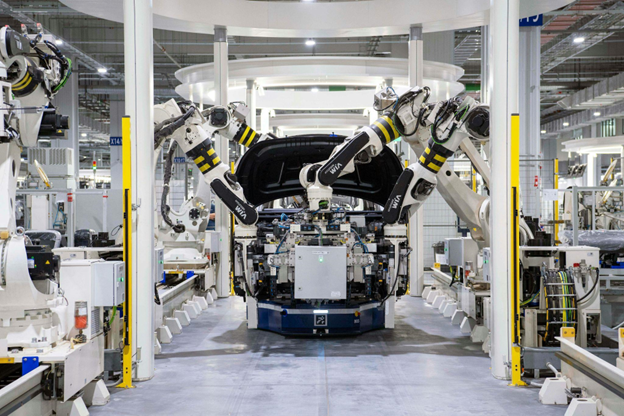Driving Efficiency and Sustainability Through Industrial Automation

In today’s fast-paced manufacturing and processing industries, the demand for smarter, more efficient and sustainable operations has never been greater. Businesses across North America and around the world are embracing advanced technologies to remain competitive, reduce downtime and optimize energy use.
One of the most transformative shifts happening today is the adoption of industrial automation, a technology-driven approach that enhances productivity while aligning with global sustainability goals. From mining and oil & gas to food and beverage, automation is shaping the future of industrial performance.
What Is Industrial Automation?
Industrial automation involves the integration of control systems, advanced motors and digital technologies to operate equipment with minimal human intervention. It spans everything from basic motor-driven applications to sophisticated smart systems that collect data, analyze performance and adjust operations in real time.
At its core, automation reduces inefficiencies, boosts safety and extends the life cycle of critical equipment. For organizations, this translates into improved output, lower costs and a stronger competitive advantage.
Why Industrial Automation Matters Now
The global industrial landscape is facing unprecedented challenges. Energy costs are rising, skilled labor is increasingly scarce and industries must adhere to stricter environmental regulations. In this environment, automation is no longer a “nice-to-have”, it’s essential.
Key Benefits of Industrial Automation:
- Increased Productivity
Automated systems run continuously without fatigue, enabling higher throughput and consistent product quality.
- Enhanced Energy Efficiency
Advanced motors and drives optimize energy use, aligning with sustainability initiatives while lowering operational costs.
- Improved Safety
Automation reduces human exposure to hazardous environments, particularly in industries such as mining and oil & gas.
- Predictive Maintenance
Intelligent controls and monitoring systems detect issues before they escalate, minimizing unplanned downtime.
- Scalability and Flexibility
Whether in food processing or heavy manufacturing, automation adapts to production demands without sacrificing efficiency.
Industrial Automation in Action
Different industries have unique challenges and automation offers solutions tailored to each environment.
Mining and Oil & Gas
Harsh conditions and high downtime costs make automation a necessity. Automation reduces the need for manual monitoring, while rugged motors and controls deliver reliable performance under extreme conditions.
Food & Beverage
Automation ensures compliance with stringent hygiene standards while maximizing throughput. Precision motors and drives help regulate everything from mixing to packaging.
Manufacturing
Automated systems streamline repetitive tasks, improve product consistency and help manufacturers pivot quickly to new market demands.
Data-Driven Insights: Who’s Engaging With Automation
Analytics reveal strong interest in automation technologies from audiences in Canada and the United States, particularly in urban hubs such as Toronto, Montreal and Calgary. Engagement data shows that professionals aged 25-54 are most interested in automation-related topics, aligning with the decision-makers in industries like mining, energy and advanced manufacturing.
Traffic trends also indicate that organic search and direct visits are the leading channels driving users to explore automation content. This underscores the growing demand for information on energy efficiency, safety improvements and cost-saving strategies through automation.
Sustainability: Automation’s Critical Role
Sustainability is no longer optional, it is a competitive differentiator. By integrating automation with energy-efficient motors and intelligent controls, industries significantly reduce carbon footprints. For instance, variable frequency drives can lower motor energy use by as much as 30%, while predictive maintenance minimizes waste from premature equipment failure.
Through these technologies, businesses don’t just cut costs, they build more resilient and environmentally responsible operations.

The Future of Industrial Automation
As technologies like AI and IoT mature, the next generation of automation will be more connected, predictive and adaptive. Systems will not only execute tasks but also make intelligent adjustments based on real-time conditions.
For businesses in Canada, the U.S. and beyond, now is the time to embrace automation as a strategic investment. The companies that move early will benefit from increased agility, cost savings and long-term sustainability.
Taking the Next Step
Industrial automation is not just about upgrading equipment, it’s about future-proofing your business. Whether in mining, food & beverage or manufacturing, automation provides the foundation for success with advanced motors, drives and controls.
To learn more about how automation can transform your operations, explore solutions for industrial automation today.
Want to know about The Complete Guide to Finding the Best Prepaid Sim Card Check out our Tech category.





